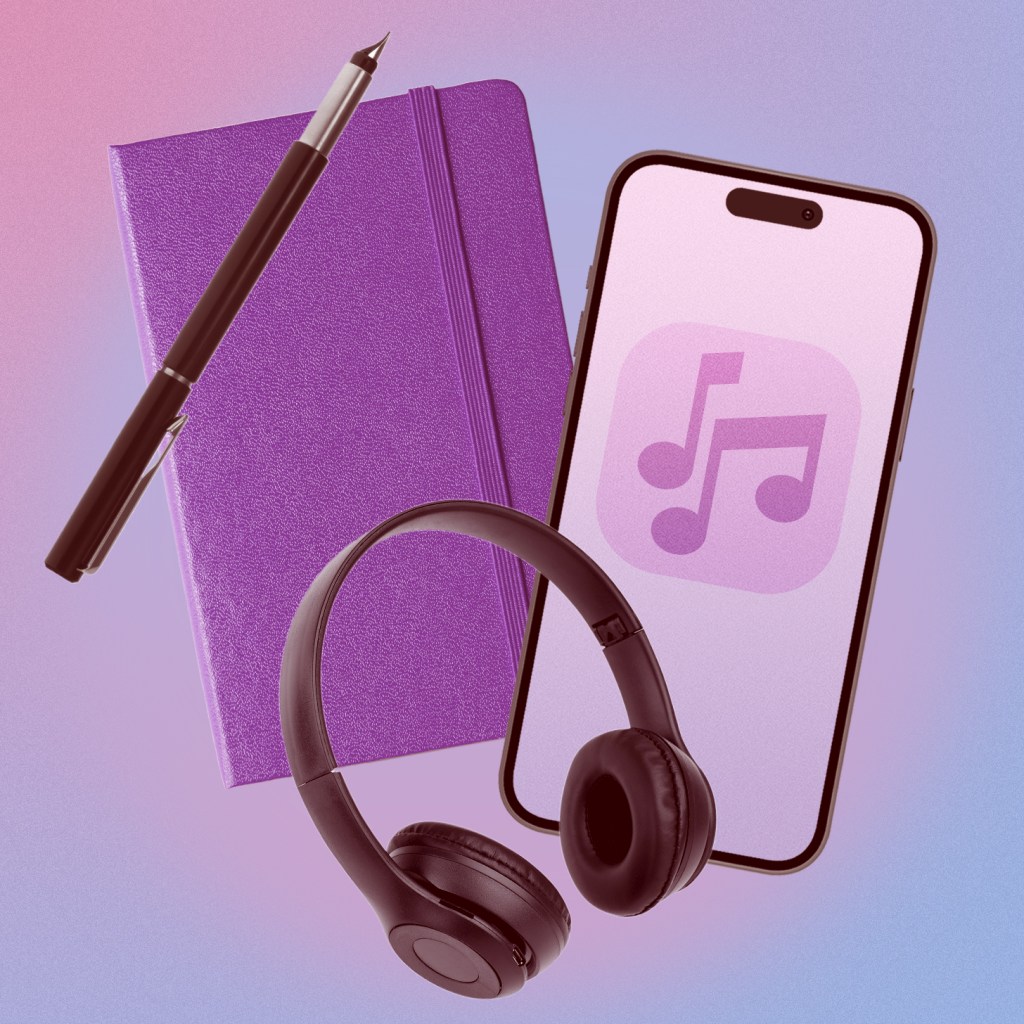The data is securely locked in and disclaimers are popping up on social media. Yes, the much-anticipated Spotify Wrapped has arrived. The year-end musical roundup has held us captive since 2016, and the reason is crystal clear: it allows us to delve deeper into our own psyche. Analyzing our typically private, headphone-clad listening habits, the streaming app transforms them into a show-and-tell, statistic-packed slideshow summarizing the last 11 months.
Depending on whether your top song, artist, genre, or podcast is boast- or roast-worthy, it can trigger that same urge to share on your Instagram Story as when you touch down on holiday. Perhaps it’s the confirmation you needed to cement your superfan status in the community of Swifties or a chance to publicly showcase your unique taste in music. On the flip side, it can equally fill us with fear and has created a wave of preemptive excuses on social media ahead of results day. One X user (formerly Twitter) wrote, “Before spotify wrapped comes out let’s remember that this hasn’t been an easy year for me and i went through several mental crises before yall judge me.” Is it that the shareable tradition is actually a window into our well-being?
“Our top artists, genres, and songs can offer insights into our state of mind throughout the year, reflecting our moods, interests, and experiences.”
Included in the data, Spotify shares in-depth insights on our “audio aura,” music moods broken down into six colors from high-energy orange to calm green. It also reveals 12 distinct music personalities, including The Shapeshifter that chases newness and The Alchemist, who constantly creates unique playlists. But what else can it teach us?
“Our top artists, genres, and songs can offer insights into our state of mind throughout the year, reflecting our moods, interests, and experiences,” Dr. Becky Spelman, a psychologist and founder at Private Therapy Clinic, tells POPSUGAR. “They can potentially trigger negative emotions during certain periods of the year if the songs present a reminder of difficult times.” The impact of our song choices isn’t just day-to-day but comes into play during various ups and downs we face throughout the year, shaping our overall mental and emotional well-being. Certain songs can evoke nostalgic or bittersweet memories.
“I guarantee Doja Cat or Lizzo will be top of my lists this year, with sad songs scattered in between,” a friend tells me ahead of this year’s release. “I broke up with my ex at the beginning of the year and definitely went through a lot of mellow, heavy songs that I now can’t listen to. The latter part of the year, I started dating, and both Lizzo and Doja Cat were the female-empowering confidence boost I needed to get me out there. A complete change from 2022, which was more indie/rock.” It’s common that breakups are associated with sad songs, not only because of the emotionally heavy lyrics, but also because the slower tempo resonates more with mellow moods. On the other hand, pop music is associated with extroverted personalities and high self-esteem, according to a study published in the American Journal of Psychology – making it the ideal genre for a pre-date pump up.
“Listening to the same song on repeat . . . allows the listener to dictate their environment and find comfort in repetition and familiarity. It can also suggest that the listener has a desire for control.”
Another trait Spotify Wrapped is great at outing is habitual repeaters. Confession time: I’m one of them. Tems’s album “For Broken Ears” is the soundtrack to the 2023 chapter of my life, and I’m still listening to it on loop, especially if I’m feeling nervous. And it turns out, there’s a reason for this. “Listening to the same song on repeat could indicate a strong emotional connection or resonance with the lyrics. It allows the listener to dictate their environment and find comfort in repetition and familiarity. It can also suggest that the listener has a desire for control,” Dr. Spelman says. In situations that make us feel uneasy, it makes sense to turn to something that provides comfort, without fear of a random, new song disturbing your peace.
Of course, it’s not just your Wrapped that unearths some truths about your well-being – how you react to it is part of the allure. While it’s a popular way to bond with others over a universal shared love of music, it can make us feel pressure to fit in. “Feeling anxiety over unconventional artists or songs in your Spotify Wrapped could indicate a desire to appear cool or conform to societal expectations. It may reflect a person’s need for validation and a fear of being perceived as out of touch,” Dr. Spelman says. “It can reveal aspects of our psyche, such as feelings of pride or superiority, insecurity, or vulnerability. It cleverly exposes our music preferences and can evoke various emotions and self-perceptions.” Which is the reason it’s worth showing to your therapist. While you might withhold thoughts and feelings in a session, Spotify Wrapped exposes them via the medium of music.
Spotify Wrapped itself may bring up mixed emotions, but it shouldn’t dissuade you from listening to the music that gets you going. Be your authentic self and lean into that random musicals playlist you love or the ’70s soul that features highly on your Wrapped. Besides, the positive impact music has on our mental health, from reducing stress and alleviating anxiety to being a form of self-expression and stimulating dopamine release, is far superior. So, if you are still belting out the “Barbie” soundtrack in the shower on a Monday morning, then own it. If you don’t want to share it with the world, send it to your therapist instead.

